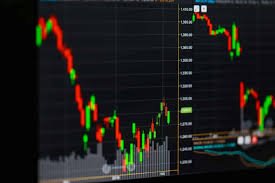
Beginner’s Guide to Forex Trading: Start Your Journey Here
Forex trading, or foreign exchange trading, is one of the most exciting and potentially lucrative endeavors for those looking to invest in the global economic landscape. As a beginner, understanding the fundamental aspects of Forex trading is crucial for your success. This guide aims to provide you with the essential knowledge and resources to help you embark on your Forex trading journey. For more information about various platforms, you can visit beginner forex trading Trading Brokers in Vietnam.
What is Forex Trading?
Forex trading involves exchanging one currency for another, taking advantage of fluctuations in exchange rates. Unlike the stock market, the Forex market operates 24 hours a day, five days a week, making it highly accessible to traders worldwide. It is the largest financial market globally, with an average daily trading volume exceeding $6 trillion.
Understanding Currency Pairs
In Forex trading, currencies are traded in pairs. Each pair consists of a base currency and a quote currency, such as the EUR/USD or the GBP/JPY. The first currency in the pair is the base currency, while the second one is the quote currency. The exchange rate indicates how much of the quote currency is needed to buy one unit of the base currency. Understanding how to read currency pairs is fundamental for making informed trading decisions.
Key Terminology
Before diving into trading, it’s essential to familiarize yourself with some key terms:
- Pip: A pip is the smallest price movement in a currency pair, usually the fourth decimal place (0.0001).
- Leverage: Leverage allows traders to control larger positions with a smaller amount of capital, amplifying potential profits but also increasing risk.
- Spread: The spread is the difference between the bid price and the ask price in a currency pair.
- Lot: A lot is a standardized quantity of a currency pair, with a standard lot equating to 100,000 units of the base currency.
- Margin: Margin refers to the amount of money required to open a leveraged position in the Forex market.
Choosing a Forex Broker
Selecting a reliable Forex broker is crucial for your trading success. A good broker will provide you with a user-friendly trading platform, educational resources, competitive spreads, and excellent customer service. When assessing brokers, consider the following factors:
- Regulation: Ensure the broker is regulated by a recognized governing authority for your safety.
- Trading Platform: Look for a broker that offers a robust trading platform with essential features.
- Account Types: Brokers offer varied account types; consider what’s best for your trading style.
- Fees: Understand the broker’s fee structure, including spreads, commissions, and withdrawal fees.

Developing a Trading Strategy
Successful Forex traders rely on well-defined trading strategies. Here are some popular strategies for beginners:
- Scalping: A short-term strategy that aims to make small profits from numerous trades throughout the day.
- Day Trading: Involves opening and closing trades within the same day, avoiding overnight exposure.
- Swing Trading: Captures shorter-term market movements by holding positions for several days to weeks.
- Trend Following: This strategy identifies and follows existing market trends to maximize profits.
Risk Management
Effective risk management is vital to long-term success in Forex trading. Here’s how to manage risk:
- Set Stop-Loss Orders: A stop-loss order automatically closes a trade at a pre-determined price to limit potential losses.
- Use Proper Position Sizing: Determine your position size based on your account balance and risk tolerance.
- Diversify Your Trades: Avoid putting all your capital into a single trade; diversify your trades across different currency pairs.
- Keep Emotions in Check: Emotional trading can lead to impulsive decisions; stick to your strategy.
Practice with a Demo Account
Most Forex brokers offer demo accounts that allow you to practice trading with virtual money. Utilize this opportunity to test your trading strategies and familiarize yourself with the trading platform before risking real money. This is especially important for beginners to gain experience without the pressure of financial loss.
Stay Educated and Updated
The Forex market is dynamic and ever-changing. Staying informed about global economic events, news releases, and market analysis is crucial. Consider the following resources to enhance your learning:
- Online Courses: Many platforms offer affordable or free Forex trading courses.
- Webinars and Workshops: Participate in live webinars or workshops hosted by experienced traders.
- Books: Read books that cover both the fundamentals of Forex trading and advanced strategies.
- Social Trading Platforms: Join social trading platforms that allow you to observe and emulate successful traders.
Conclusion
Forex trading can be an exciting and rewarding venture for beginners, but it requires significant effort, knowledge, and practice. By understanding the basics, terms, trading strategies, and risk management tactics, you can lay a solid foundation for your trading career. Always remember that trading involves risks, and there is no guaranteed profit. Stay disciplined, continue learning, and most importantly, enjoy the journey into the world of Forex trading!


